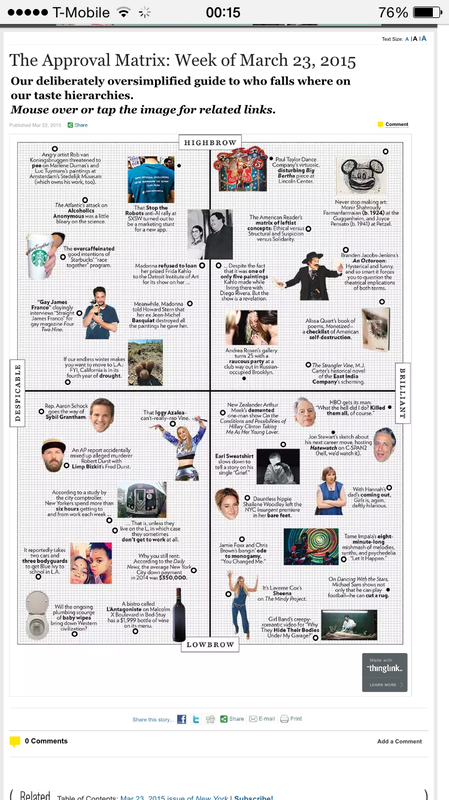|
It's not often you can make the world a better place without it costing you money, time or effort. But when it comes to the live arts, there's one utterly free, utterly painless thing you can do to increase your enjoyment, improve artists' lives and make a big difference:
At the end of every show you see, stand up and applaud. I'm talking like tipping in America, or 5-star Uber ratings: by default. Whether you judge what you've seen to be genius, run of the mill or barely tolerable, stand the fuck up. Why? Why not?
The BBC have made a new series of War & Peace that I found completely engrossing. I’m trying to figure out why. On the surface, it could be pretty trite. It’s full of rich people who love each other but can’t seem to make it work. I reckon that what elevates it is that the INTERIOR LANDSCAPE of the characters is being paralleled on an epic scale by the EXTERIOR LANDSCAPE - what’s happening to their nation. Russia is bursting with dilemma – the French are on their doorstep and centuries of civilisation, culture, wealth and privilege is at stake. Do they risk it all by fighting Napoleon? Or risk it all by making peace with him? Does Napoleon offer promise of even greater civilisation? Or are their traditional Russian ways superior? What’s best? War or Peace? In the end they try both. War & Peace. That’s why it’s such a great title. And it’s such a great story because those same environmental dilemmas are being paralleled in each character’s emotional landscape. Each character’s soul teeters between war and peace. Each chooses both.
|
PROFIT & DELIGHTWhat I'm thinking about what I'm doing. This blog aspires to a more profound definition of 'profit' and the bog-standard sense of 'delight'. Archives
August 2017
|

